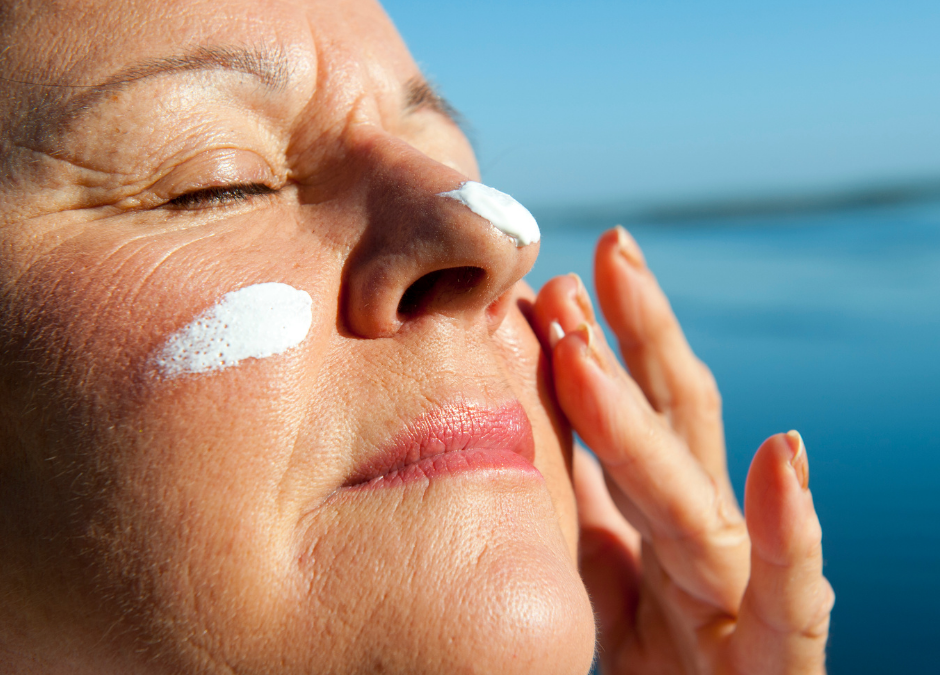This month we want to bring awareness to skin cancer and what you can do to prevent and detect possible skin cancer/melanoma.
Skin cancer is the most common cancer in America, affecting every 1 in 5 adults by the age of 70.
Not all skin cancer is the same. Melanoma is one of the deadliest forms of skin cancer. Other common types of skin cancer include basal cell carcinomas and squamous cell carcinomas which usually form where the skin is most vulnerable to sun exposure, such as the face, neck, and head.
Risk Factors
- Lighter natural skin color
- Light eyes
- Blonde or red hair
- Skin that freckles, reddens, or burns easily
- Certain types and sizes of moles
- Family history of skin cancer
- A previous skin cancer diagnosis
- Older age
- Sunburn
Detection
When diagnosing and classifying melanomas, doctors use ABCDE. ABCDE stands for asymmetry, border, color, diameter, and evolving.
- Asymmetry: Parts of the mole or birthmark do not match.
- Border: Edges are jagged, blurred, or irregular
- Color: The shade of the mole is not uniform and may be lighter or darker with patches of pink, red blue, or white.
- Diameter: Most cancers are bigger than ¼ inch across (the size of a pencil eraser).
- Evolving: The mole is getting larger or changing in shape or color.
Skin damage is cumulative, so while it is still possible to be diagnosed at any age, your risk increases as you grow older.
Prevention
Paying attention to warning signs early when the cancer is small can make it much easier to treat.
- Regularly examine your skin. We recommend checking your skin about once a month, using a handheld mirror to view areas of the body that are harder to see.
- Always wear sunscreen on exposed areas every day—an SPF of 15 or higher is recommended. Reapply every two hours or after sweating or swimming—2 tablespoons.
- Cover up. Wear a face-covering hat and UV-blocking sunglasses.
- Stay in the shade. Seek shady areas underneath trees or an umbrella whenever possible.
- Avoid getting sunburned.
- See a dermatologist annually.
Direct Primary Care Doctor in Louisville, KY
Concerned about possible skin cancer, or want to have your skin examined? Schedule a visit with Dr. John Manire. It’s always better to be safer than sorry. Protect yourself from skin cancer and know the symptoms.

